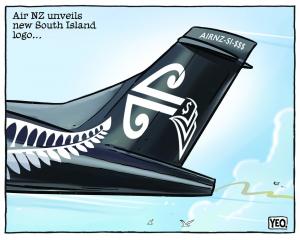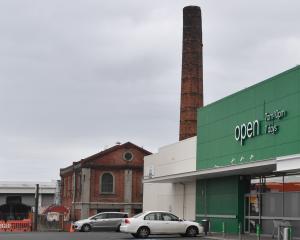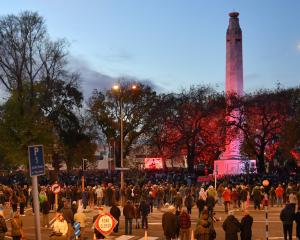Home is where the heart is. And, for a group of new refugees, both are to be found in Dunedin.
The city has been chosen as a new refugee resettlement location, required after the Government committed to upping its refugee quota to accommodate some of those fleeing the conflict in Syria, including the brutality of the self-proclaimed Islamic State jihadists.
The city was among many throughout the country and the world to rally for greater governmental responses to the refugee crisis, which has spilled across Syria's borders to inundate its neighbours and is now overwhelming Europe.
Calls for action and pledges of support came from the Dunedin City Council, a newly-formed Dunedin Refugee Steering Group, businesses, families and individuals.
A group with representatives from various ministries considered Dunedin (alongside New Plymouth, Hastings/Napier, Invercargill and Tauranga) and found the strong community support, services, Government agencies, employment opportunities and available housing made the city a favourable resettlement location.
Dunedin now joins the existing resettlement areas of Auckland, Waikato, Wellington, Manawatu and Nelson.
All refugees spend six to eight weeks in the Mangere Refugee Resettlement Centre in Auckland before being relocated.
The first group of refugees is set to arrive in May.
We could receive up to 150 a year, in groups of 40 to 45.
How many may be some of the extra Syrian refugees the Government has agreed to take in, or those from elsewhere as part of our normal annual quota, is unclear.
The refugees will go into state and social housing, and private accommodation.
The refugees will need immediate support while they adjust to a new city, country, culture, language, climate, services, education system and employment - and recover from the trauma and loss they have experienced.
That support should be forthcoming.
While there are many who felt the Government's humanitarian response to the crisis was paltry (an emergency intake of 600 Syrian refugees and 150 Syrian refugees as part of the current annual refugee quota of 750 - over the next two and a half-years) the Government has said the small increase allows for rigorous security checks, as well as adequate resettlement support that does not stretch existing resources.
Dunedin and Otago residents should be reassured then that all checks and balances are in place.
There is no pretending there won't be challenges, however - as with any change.
The biggest one to overcome is likely to be fear and prejudice, fuelled by the proliferation of terror attacks, including those in the West.
However, fear and prejudice can be combated with courage, education and understanding.
Those perpetrating such attacks are grossly misusing and misinterpreting religion to justify their actions.
Others should not be tarred with the same brush.
The risk of ‘‘importing'' or ‘‘growing'' terrorists at home is surely minute compared to the numbers fleeing the fanatics.
And ‘‘homegrown'' violence of one form or another is of course committed by many people, and is a risk in any society.
The best we can do as individuals and a society to mitigate the violence of extremism - which often foments as a result of isolation and disenchantment - is to treat our new residents with warmth and friendship; offer them help, not hostility.
Treat them as we would like to be treated were we in the same desperate situation.
And trust that our love and support will be repaid, as generations of different nationalities have done here previously, helping to build and sustain our beautiful, diverse city.
For if we give in to negative perceptions, then those spreading fear and hatred have already infected us.












